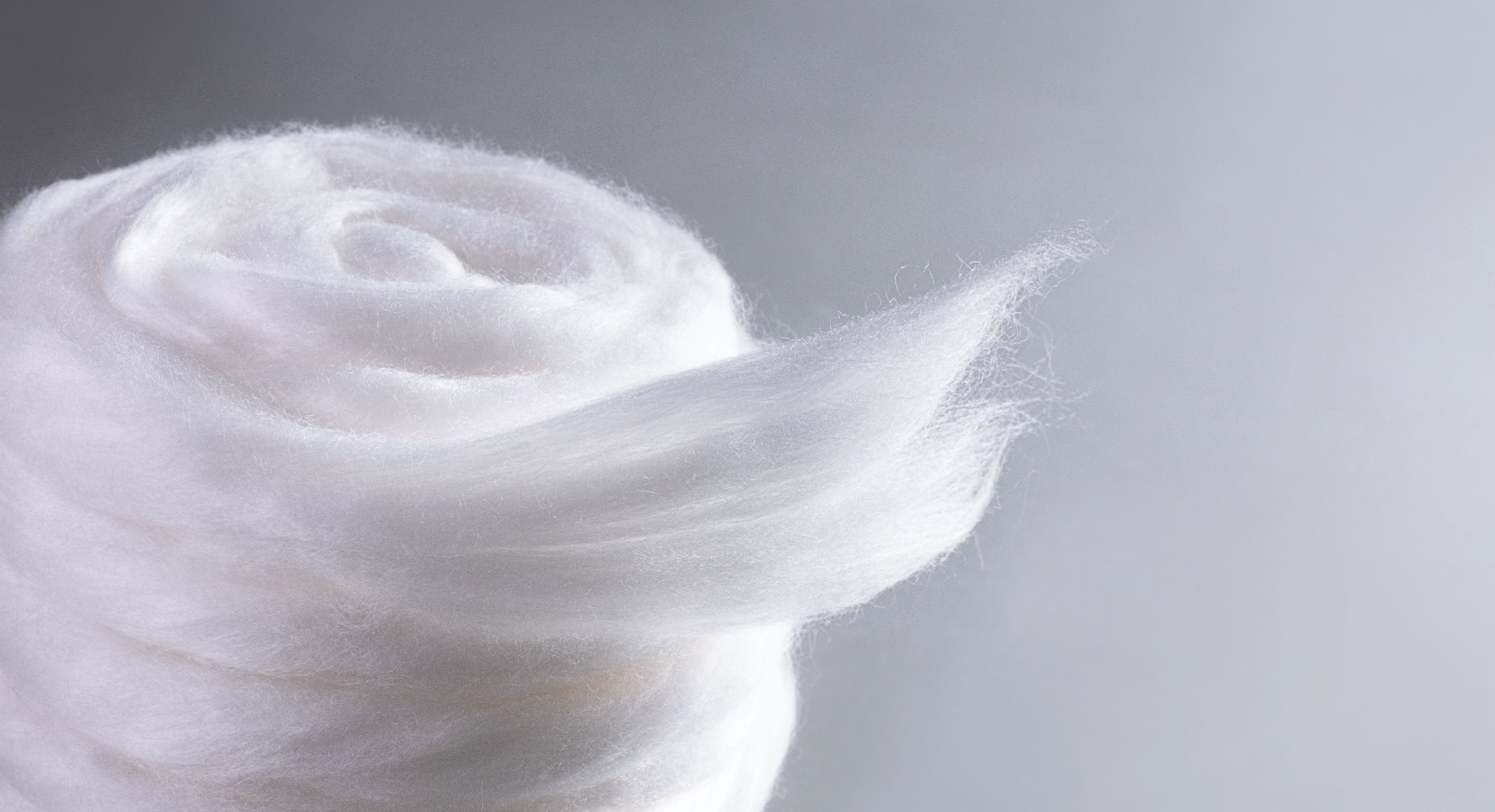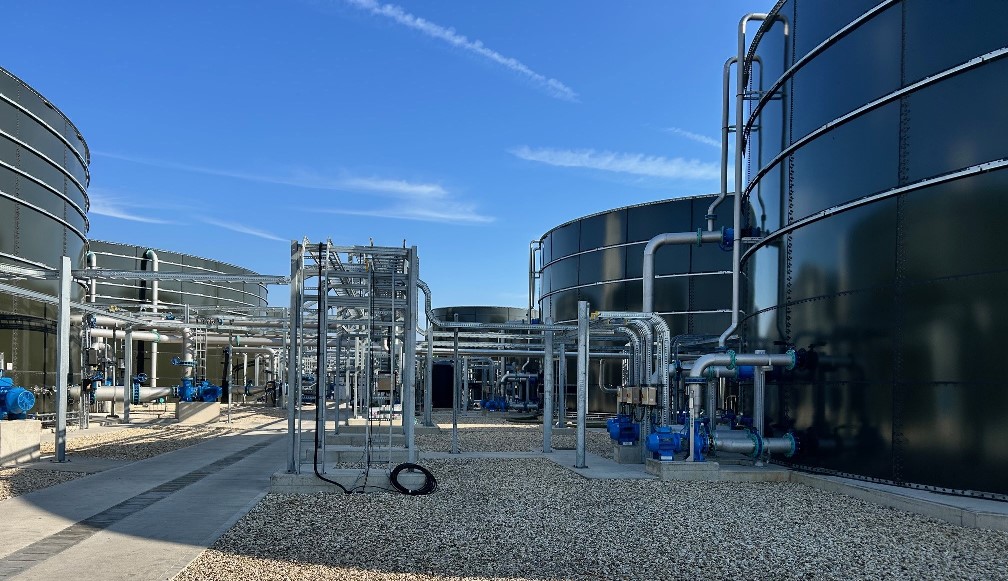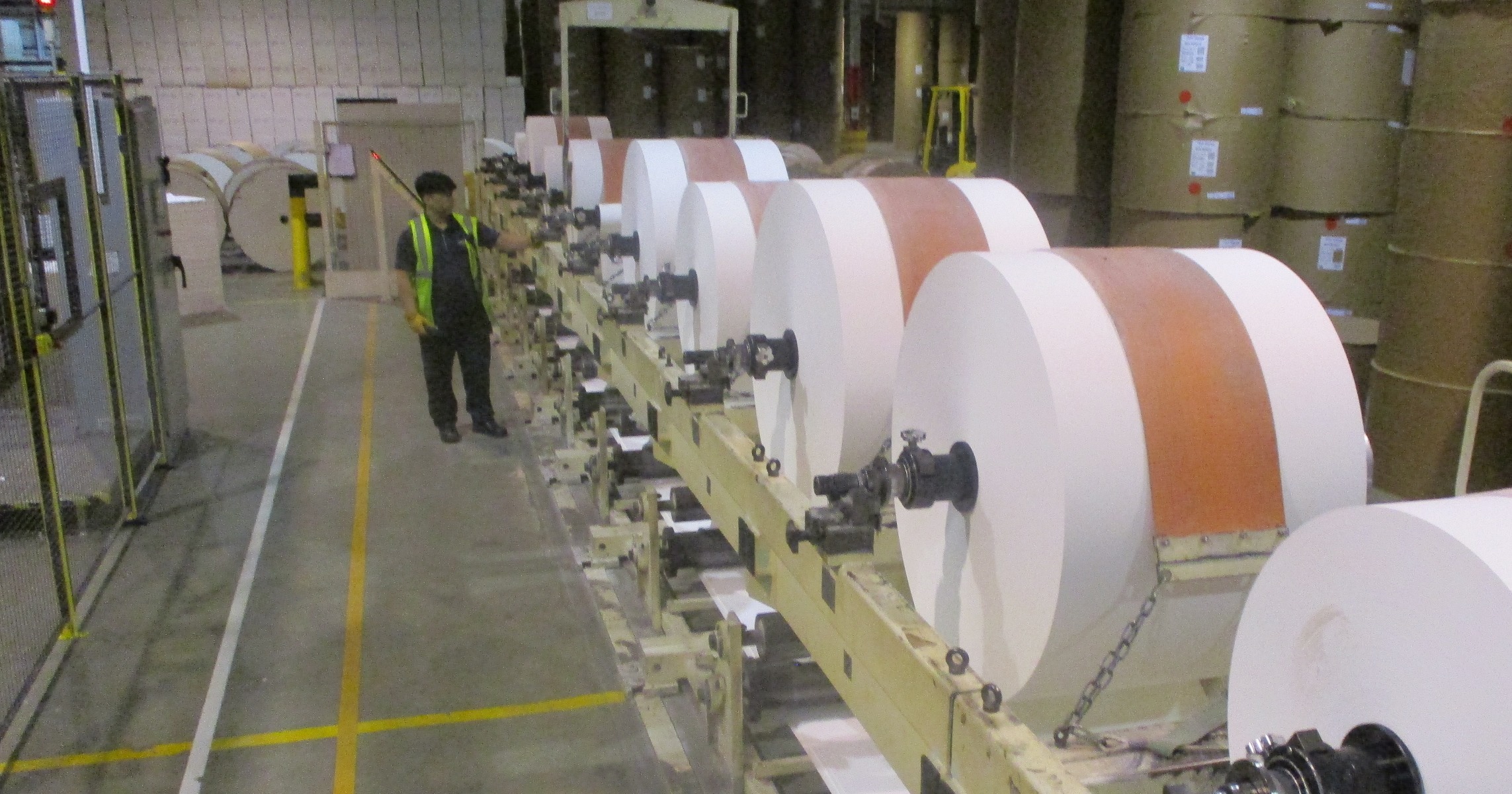Spotlight on Lenzing Fibers: Innovation and Sustainability Go Hand in Hand
Innovation and sustainability are at the heart of operations at Lenzing Fibers Grimsby Ltd, the UK arm of a global business headquartered in Austria.
Manufacturing fibres from trees
The Grimsby site employs 226 people directly and specialises in producing lyocell, a regenerated cellulose fibre using dissolving pulp as a raw material. The pulp originates from certified and controlled eucalyptus plantations which are sustainably managed in countries like South Africa and Sweden.
The fibres produced at the Grimsby site are used in textile applications such as clothing, bed linen and curtains as well as in non-woven applications such as industrial filters, medical swabs, hygienic wipes and paper products.

These fibres can be found in clothing and furnishings sold by high street retailers such as IKEA, Marks & Spencer, Next and Whistles.
Sustainability
Producing lyocell fibres from wood pulp is much more sustainable than either growing cotton or manufacturing man-made fibres from fossil fuels such as nylon. The managed plantations meet Forest Stewardship Council Certification standards, and trees grow from a sapling to fully mature within six or seven years, at which point they are harvested, and new saplings are planted.
These trees provide ten times the yield of cotton over the same land area and require 100 times less water per kilogramme produced.
The fibers are also highly biodegradable because of their cellulose content.
“Lyocell is seen as one of the most environmentally friendly fibres on the planet as it offers big savings in terms of water usage and doesn’t require nasty chemicals in its manufacture,” says Phil Munson, Director of Global Improvement & Technology Specialities at Lenzing Fibers.
“It’s a very sustainable process, and sustainability is key to everything that we do at Lenzing Fibers.”
Water treatment
The Grimsby site was built in 1998 by Courtaulds Fibers, who pioneered the lyocell process in the 1980s, and it was acquired by Lenzing Fibers in 2004. Until now there has been no water treatment plant on site as the manufacturing process produces relatively few emissions in the water that leaves the site.
However, Lenzing Fibers Grimsby is committed to reducing its emissions to even lower levels, so it began constructing a new waste water treatment plant in Grimsby in 2021.
The new £20m facility is the largest single investment in the site since the factory was opened, and it is now fully operational, treating all the effluent that flows into the river Humber.

“Because the whole manufacturing process has a very low impact on the environment, we had no water treatment plant before,” says Phil. “Now we’re taking our low emissions down to a whole new level.
“We’re one of the cleanest factories on the south Humber bank, but we want to get ahead of the game and become even more sustainable – our aim is for 90% of the residual chemicals to be removed from the effluent before it reaches the river.”
Lenzing Fibers is keen to use local suppliers where possible; the construction of the waste water treatment plant was undertaken by Dunholme-based Team Lincolnshire ambassador Daniel Charles Construction.
Innovation
Alongside sustainability, the other watchword at Lenzing Fibers is innovation.
“We make products here in Grimsby that are unique in the world,” says Phil. “We’re the smallest site in the Lenzing Fibers group but we play a key role in that we can produce small-scale runs of unique and specialist products.
“We carry out lots of product and process trials using the experience and expertise of our workforce.”
Providing job opportunities in Grimsby
The new waste water treatment plant has created three new jobs, and it has future-proofed the Lenzing Fibers operation in the town as well as creating 150 jobs during its construction.
“We want to be seen as the preferred employer of choice in North East Lincolnshire,” says Site Operations Director Jemma Turrell.
“When we interview candidates for jobs we hear repeatedly that what attracts them to Lenzing is our sustainability credentials. We also offer a lot of employee benefits including flexible working, salary sacrifice schemes and healthcare support.
“Additionally, our apprenticeship scheme is also very important to us. We take on around ten apprentices every year on average, in areas such as operations, engineering and support functions.
“We are keen to promote equality, diversity and inclusion too; we have taken on a number of female operations apprentices and I was the first female Site Operations Director at a Lenzing Fibers site.”
Working with Invest Lincolnshire
Invest Lincolnshire’s Senior Place and Investment Officer Rachael Markham has been working closely with Lenzing Fibers since her days at North East Lincolnshire Council, so the relationship between the business and Invest Lincolnshire has deep roots.
Rachael supports Lenzing Fibers as part of Invest Lincolnshire’s Department of Business & Trade key account management programme.
“Rachael has been supporting us for about six years,” says Phil. “She has facilitated meetings with the right people and put us in touch with key stakeholders to talk about investments. That’s been a real benefit for us – getting the right people around a table when you need to talk to them.
“Invest Lincolnshire is terrific at promoting Greater Lincolnshire as an attractive place to work, particularly for people with a degree-level education who may otherwise not consider the area, and at promoting the standard of living and the lifestyle that’s possible here. That really helps us when it comes to recruiting the best talent.”



